Freediving is an activity of extreme sports, where athletes dive underwater without special equipment. It has become a very popular activity among elite athletes, celebrities, and anyone who wants to explore and go on an adventure in the deep blue sea.
It is a unique challenge to the human psyche. A person's abilities are pushed to their limits when freediving underwater for extended periods, using only breath control and their own body's buoyancy to stay comfortably submerged. It is a sport that requires you to use your body to its fullest potential, relying on your own strength and abilities.

Freediving is known for its extreme nature, but it's not all about the challenge of going underwater and looking at things from below. It's much more than that. Freediving allows you to take on a different challenge with many mental health benefits. Freedivers have found ways to improve their mental health by going underwater and into the depths of their mind.
The very idea of having to be completely submerged underwater without any special equipment challenges our minds. Ironic as it may seem, freediving offers us lots of life lessons and develops the way we think about the world through time. In this article, we will discuss some of these benefits, and who knows, maybe after reading this article, you might be one of those daring enough to pursue this challenge and make it your greatest life adventure yet.
Like many other types of physical activity, freediving helps to achieve and adhere to a more healthy lifestyle. In terms of improving your physical health, freediving helps strengthen your body and keep it at its peak and ready for any physical activity. Freediving, like any other physical activity, increases your strength, helps develop muscles, and improves endurance and vitality. Freediving activities also benefit your joints, which experience less pressure underwater, and help strengthen your lungs through exercises that increase oxygen capacity. Now that we got that covered, let’s focus more on the mental health benefits of freediving.
It reduces anxiety
Freediving is an activity that has a positive effect on your mental and psychic state. It has been proven that regular physical activity reduces anxiety, and freediving in particular helps you master a variety of relaxation and concentration techniques that will help you be more conscious and become more calm and composed.
But the mental health benefits of freediving do not end at providing general relaxation and calming the nervous system. This activity can also be useful in solving some specific problems. One of the common psychological problems humans have is the fear of water. Whether you experience discomfort at great depth or you cannot fathom the idea of having to dive or even enter the water at all, freediving will help you cope with this fear and overcome it at a pace and form that is acceptable to you.
It improves your focus

Freediving is a sport that requires maximum concentration and attention to the body, not only on the physical level but also in terms of the ability to focus or to control and push yourself a little further beyond your limits.
Since it requires a high level of concentration, physical and mental discipline, as well as a lot of courage and a strong desire to do something very challenging, the benefits of freediving are numerous: your get stronger and more flexible, and you become more aware of your body in terms of how far it can go when confronted with difficulties in life.
Similar to a form of meditation, freediving requires a laser-sharp focus. When diving, all the distractions and extraneous thoughts have to be put aside. The lack of sound and other sensory diversions underwater presents a truly unique environment for clearing your headspace of any other worries. Through freediving, you learn to face your fears, leading to mental clarity and insight you couldn’t gain any other way.
It helps you gain confidence
Freediving courses mainly focus on confidence. Confidence before, during, or after your dive is important for safety, relaxation, and for better performance underwater. Studies have shown freedivers have higher self-confidence, coping strategies, and a higher belief in the internal locus of control, a psychological concept referring to how much a person believes they have control over experiences and situations that influence their lives.
Freedivers are also more likely to be outgoing individuals who are comfortable being around others. They tend to be more confident in social situations than non-freedivers. Past studies have also shown freedivers are more likely to feel positive emotions like happiness, contentment, and joy than those who don't participate in the sport.
In freediving, you are always confronted with the dangers of underwater creatures and the water itself. The fear of the unknown and everything that could happen while you are underneath with limited air to breathe makes it even more challenging than it already is. This is where you get to develop that sense of survival and quick thinking as to how you can adapt and conquer any challenge that is thrown at you. In this type of environment, you can gain the confidence that you can overcome anything and you can definitely do it all by yourself.
Conclusion
Keeping all of this in mind, it may be that the benefits of freediving extend much further than we have been made aware of. Studies have shown that the practice can make us more resilient, improve our health, and even increase the efficiency of our brains. What's more, those who discover the activity for themselves can reap the rewards of what it has to offer—no matter how big or small—and uncover a happier, healthier, and more fulfilled version of themselves in the process.
If you are keen on trying freediving and want to explore the therapeutic aspect this sport offers, the best thing to start this adventure is getting the right gear to prepare yourself for whatever lies ahead. And the best partner you could ever have is the Garmin Descent G1, the ultimate dive computer made for the bold diver in you.

The Descent G1 is a solid fitness buddy that provides you with the necessary data to push through your limits while you are submerged underwater. Whether it's your first time underwater or you are on to the next ocean you want to explore and conquer, you can definitely count on the Descent G1 to be your reliable partner. Explore the oceans in 6 diving modes and guarantee your dive safety by setting the tone and vibration alerts for a full range of variables including depth, dive time, ascent speed, and decompression/safety stop completion.
The patented Power Sapphire display features a top-grade sapphire crystal face that offers superior toughness compared to other materials such as mineral glass, increasing the device's resilience and making it highly resistant to scratches and damage from everyday use.
It also features an elegant stainless-steel bezel with an easy-to-read black dial that helps you keep track of your time underwater and at the surface.
To end this article, there are many reasons to believe that freediving can help boost your mental health. And when it comes to stress, anxiety, and depression, the benefits of freediving can be huge for you. It’s a new experience to try out, which is about as good an excuse as any not to be afraid of it. So if you find the reasons listed above to be convincing enough for you to try freediving, then don’t be afraid and start making your way towards conquering this new challenge with the best diving buddy, the Garmin Descent G1 dive computer.



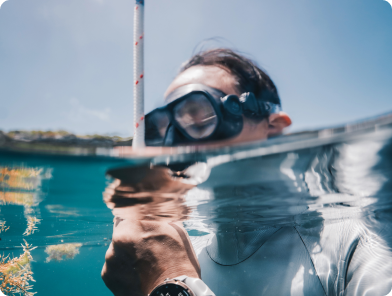
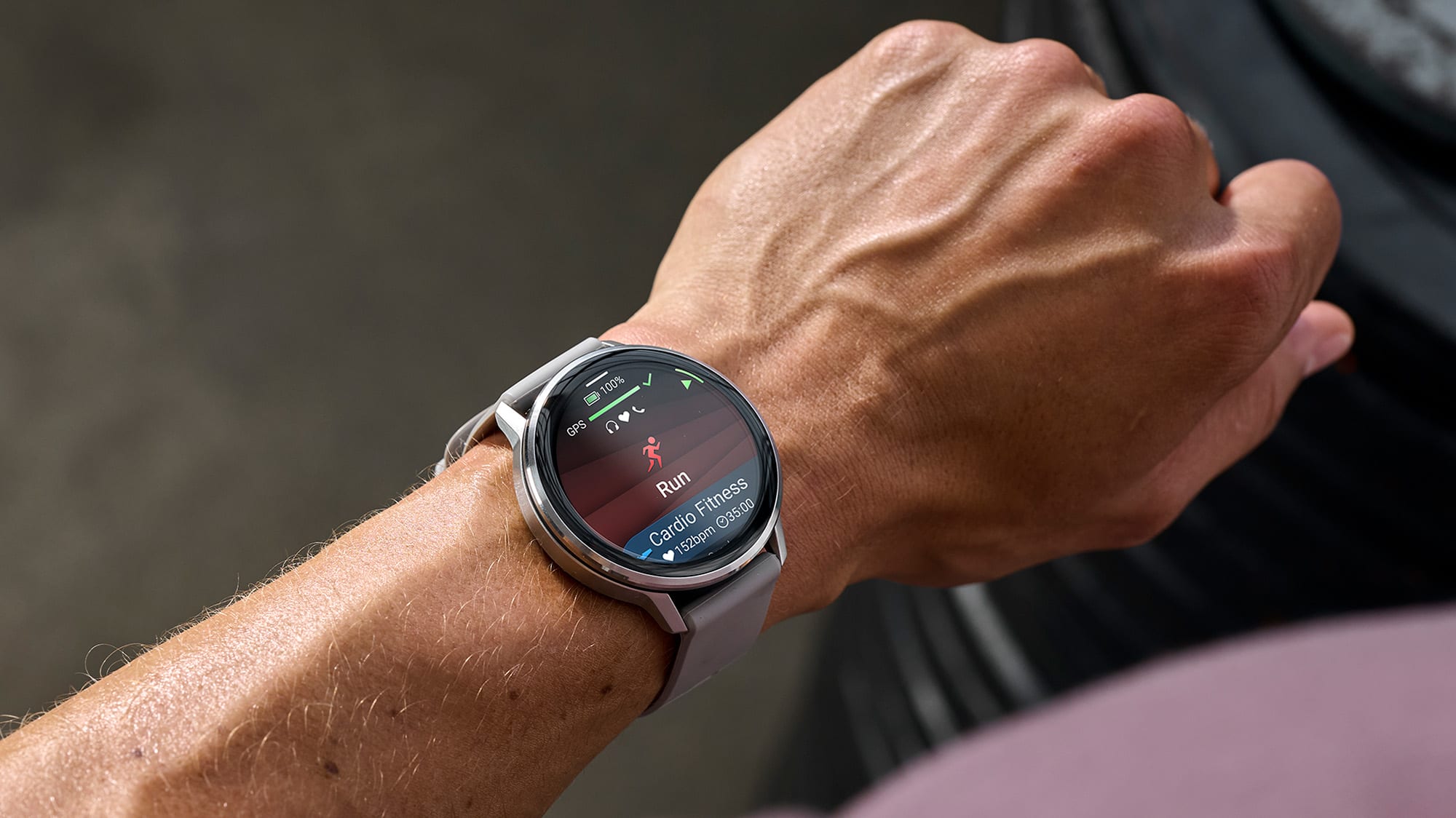
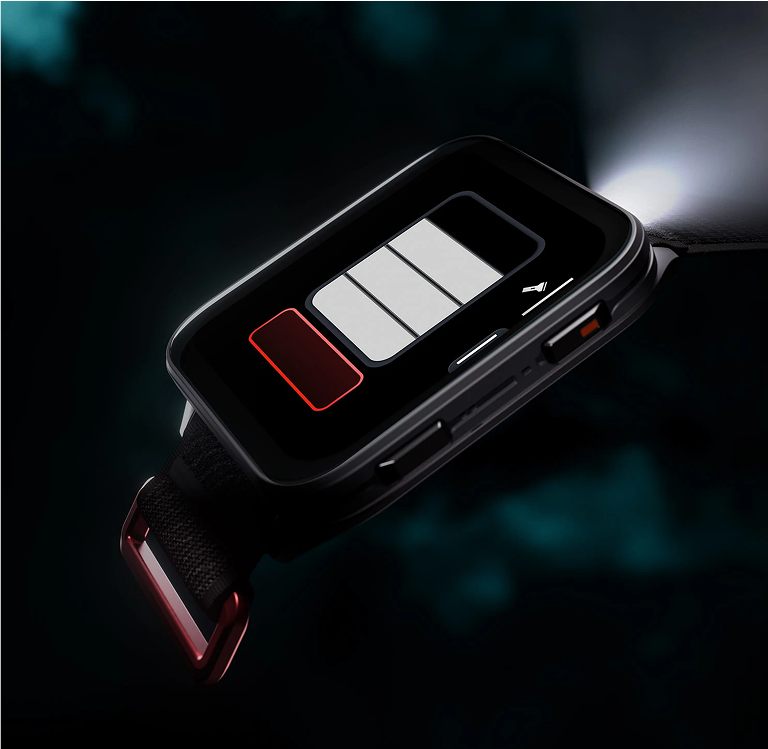
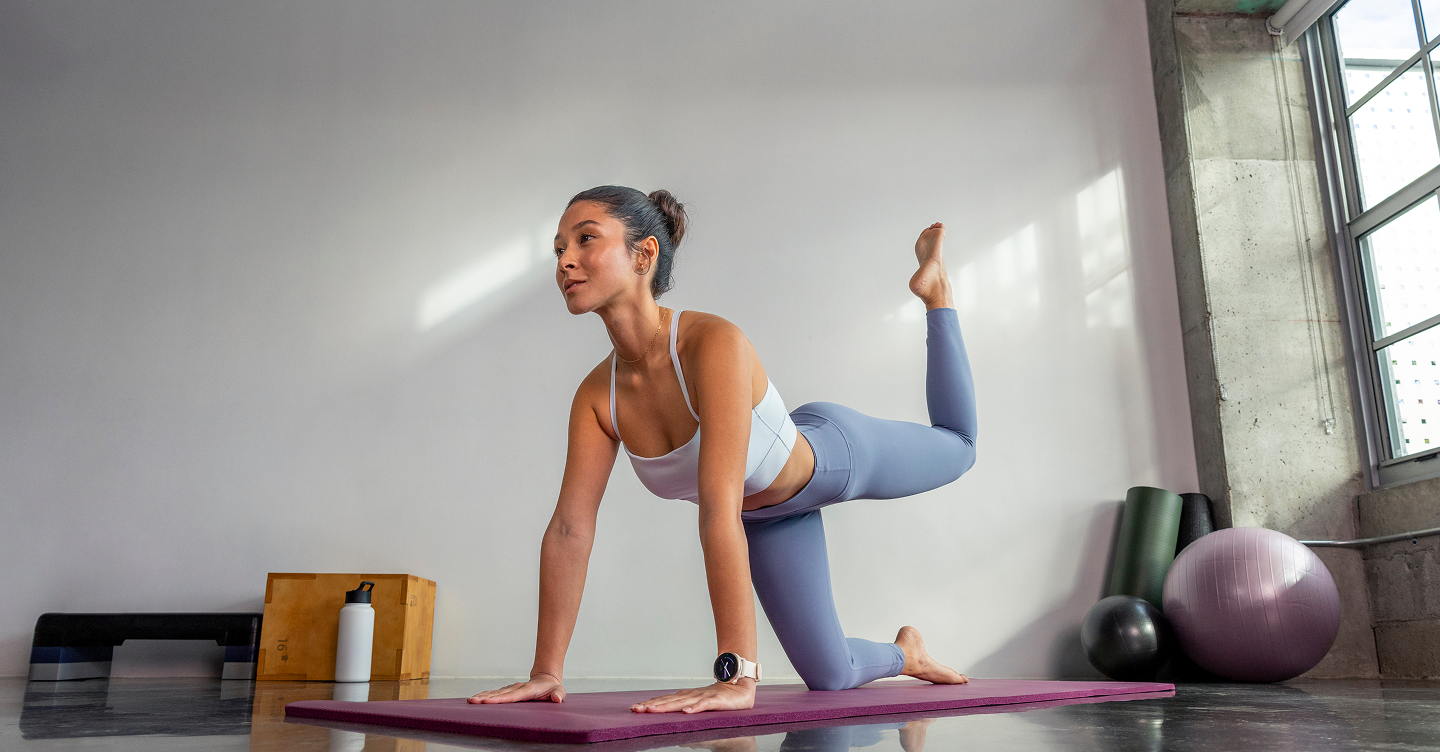
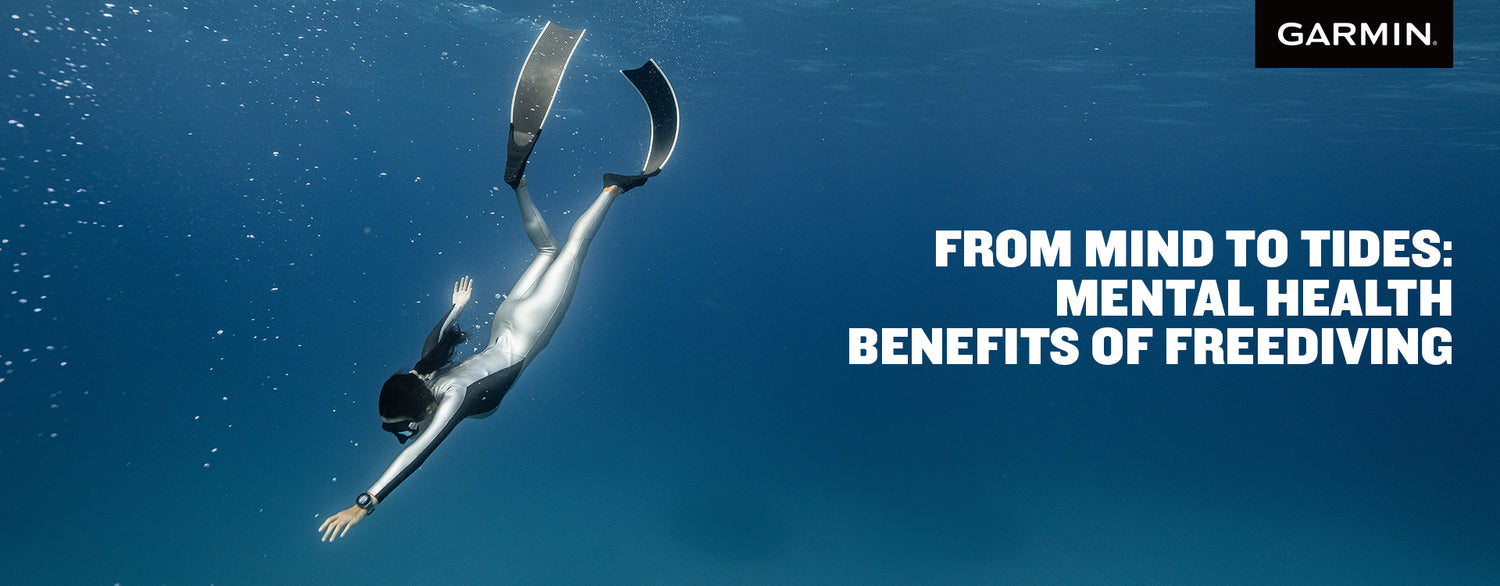


Leave a comment
All comments are moderated before being published.
This site is protected by hCaptcha and the hCaptcha Privacy Policy and Terms of Service apply.